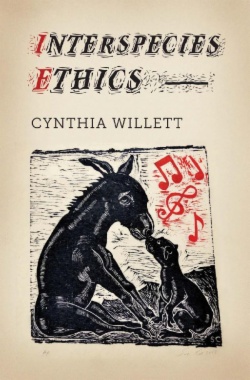Interspecies Ethics explores animals' vast capacity for agency, justice, solidarity, humor, and communication across species. The social bonds diverse animals form provide a remarkable model for communitarian justice and cosmopolitan peace, challenging the human exceptionalism that drives modern moral theory. Situating biosocial ethics firmly within coevolutionary processes, this volume has profound implications for work in social and political thought, contemporary pragmatism, Africana thought, and continental philosophy.
Interspecies Ethics develops a communitarian model for multispecies ethics, rebalancing the overemphasis on competition in the original Darwinian paradigm by drawing out and stressing the cooperationist aspects of evolutionary theory through mutual aid. The book's ethical vision offers an alternative to utilitarian, deontological, and virtue ethics, building its argument through rich anecdotes and clear explanations of recent scientific discoveries regarding animals and their agency. Geared toward a general as well as a philosophical audience, the text illuminates a variety of theories and contrasting approaches, tracing the contours of a postmoral ethics.
- Table of Contents
- Introduction: New Ideals of Belonging and Africana Origins of Interspecies Living
- 1. Can the Animal Subaltern Laugh? Neoliberal Inversions, Cross-Species Solidarities, and Other Challenges to Human Exceptionalism, with Julie Willett
- 2. Paleolithic Ethics: Ethics’ Evolution from Play, the Interspecies Community Selection Hypothesis, and Anarchic Communitarianism
- 3. Affect Attunement: Discourse Ethics Across Species
- 4. Water and Wing Give Wonder: Meditations on Cosmopolitan Peace
- 5. Reflections: A Model and a Vision of Ethical Life
- Coda; or, The Song of the Dog-Man: Mourning in J. M. Coetzee’s Disgrace
- Acknowledgments
- Notes
- Index

